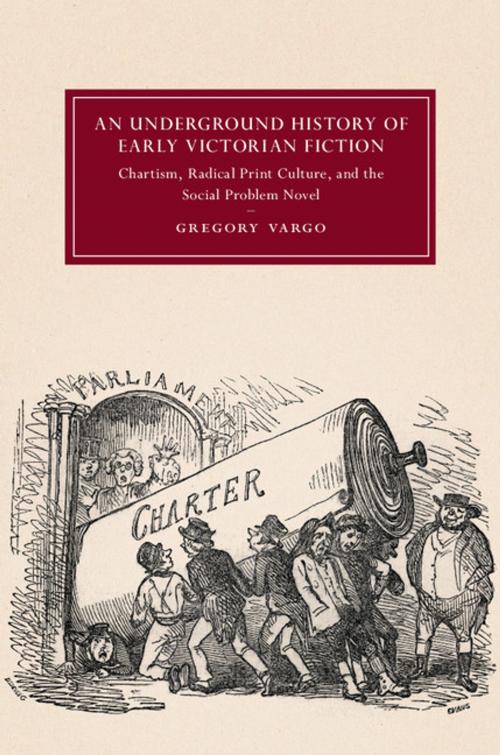An Underground History of Early Victorian Fiction
Chartism, Radical Print Culture, and the Social Problem Novel
Fiction & Literature, Literary Theory & Criticism, British| Author: | Gregory Vargo | ISBN: | 9781108187282 |
| Publisher: | Cambridge University Press | Publication: | December 7, 2017 |
| Imprint: | Cambridge University Press | Language: | English |
| Author: | Gregory Vargo |
| ISBN: | 9781108187282 |
| Publisher: | Cambridge University Press |
| Publication: | December 7, 2017 |
| Imprint: | Cambridge University Press |
| Language: | English |
How does the literature and culture of early Victorian Britain look different if viewed from below? Exploring the interplay between canonical social problem novels and the journalism and fiction appearing in the periodical press associated with working-class protest movements, Gregory Vargo challenges long-held assumptions about the cultural separation between the 'two nations' of rich and poor in the Victorian era. The flourishing radical press was home to daring literary experiments that embraced themes including empire and economic inequality, helping to shape mainstream literature. Reconstructing social and institutional networks that connected middle-class writers to the world of working-class politics, this book reveals for the first time acknowledged and unacknowledged debts to the radical canon in the work of such authors as Charles Dickens, Thomas Carlyle, Harriet Martineau and Elizabeth Gaskell. What emerges is a new vision of Victorian social life, in which fierce debates and surprising exchanges spanned the class divide.
How does the literature and culture of early Victorian Britain look different if viewed from below? Exploring the interplay between canonical social problem novels and the journalism and fiction appearing in the periodical press associated with working-class protest movements, Gregory Vargo challenges long-held assumptions about the cultural separation between the 'two nations' of rich and poor in the Victorian era. The flourishing radical press was home to daring literary experiments that embraced themes including empire and economic inequality, helping to shape mainstream literature. Reconstructing social and institutional networks that connected middle-class writers to the world of working-class politics, this book reveals for the first time acknowledged and unacknowledged debts to the radical canon in the work of such authors as Charles Dickens, Thomas Carlyle, Harriet Martineau and Elizabeth Gaskell. What emerges is a new vision of Victorian social life, in which fierce debates and surprising exchanges spanned the class divide.















